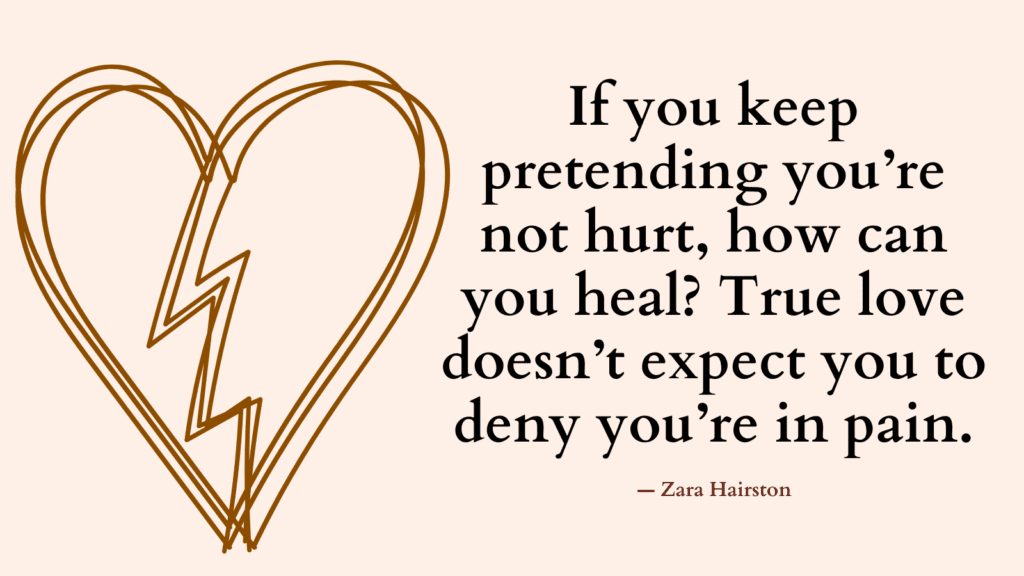In this post you’ll learn all about emotional incest – its signs and how to recovery from it.
What Is Emotional Incest?
Emotional incest, also known as covert incest, is a type of dysfunctional family dynamic where a parent or caregiver relies on their child for emotional support and intimacy in ways that are typically reserved for a partner or spouse.
This can include sharing inappropriate personal information, relying on the child to meet the parent’s emotional needs, and blurring boundaries between parent and child.
Emotional incest can have negative impacts on the child’s emotional development and relationships later in life.
It is important to note that emotional incest is not a form of sexual abuse, but rather a form of psychological abuse.
Related: Healing From Emotional Abuse In 12 Practical Steps
Emotional Incest vs. Enmeshment
Emotional incest and enmeshment are both dysfunctional patterns of communication and relationships within families.
Emotional incest, also known as covert or psychological incest, occurs when a parent or caregiver relies on their child for emotional support that should be provided by another adult.
Enmeshment, on the other hand, is a pattern of unhealthy boundaries and overly involved relationships in which family members become enmeshed in each other’s lives to the point where they lose autonomy and individual identity.
While emotional incest and enmeshment share some similarities, emotional incest focuses more specifically on the ways in which a parent or caregiver crosses boundaries by relying on their child for emotional support, while enmeshment involves a broader pattern of boundary violations between family members.
Related: Codependency And Enmeshment: 9 Signs You May Be In An Enmeshed Relationship
5 Signs of Emotional Incest
1. Excessive Dependence
This is when the parent uses the child as an emotional crutch, relying on them for companionship, support, and validation.
The parent may also exert a high level of control over the child’s life, dictating their decisions, and discouraging independence or autonomy.
2. Lack of Boundaries
One of the signs of emotional incest is a lack of boundaries between the parent and child.
A lack of boundaries can lead to blurred roles and a confused sense of identity for the child, as well as difficulty forming healthy adult relationships later in life.
This can manifest in several ways.
The parent may become overly involved in the child’s life, such as making decisions for them or living vicariously through them.
The child may not have a sense of individuality or autonomy, as their thoughts, feelings, and actions are often intertwined with the parent’s.
3. Suppressed Feelings
This occurs when a child represses their own emotions in order to cater to their parent’s emotional needs.
The child might feel like they need to be the emotional caretaker for their parent, which can lead to suppressing their own feelings and denying themselves the right to express them.
The child learns to ignore their own emotional needs and focus solely on their parent’s, leading to difficulties in forming healthy relationships and expressing emotions in adulthood.
4. Role Reversal
Emotional Role Reversal is a type of emotional incest where the child is put in the role of the parent’s emotional support.
The parent may use the child to fulfill their unmet emotional needs, such as relying on the child for comfort, validation, or advice.
As a result, the child may feel responsible for the parent’s emotional well-being and may struggle with their own emotional development.
The parent may also rely on the child to fulfill responsibilities that are typically expected of a partner or spouse, such as being their confidante or mediator in conflicts.
This can create an inappropriate level of closeness between the parent and child, blurring the boundaries of appropriate parent-child relationships.
5. Extreme Jealousy
One sign of emotional incest can be extreme jealousy exhibited by the parent towards their child’s significant other or close relationships.
The parent may become overly possessive and express intense jealousy when their child spends time with others, accusing them of neglecting or abandoning them.
This behavior can create a sense of guilt and obligation in the child, causing them to feel responsible for their parent’s emotional well-being.
Related: Undermothered: How to Mother Yourself Using These Practical 10 Strategies?
Causes of Emotional Incest
1. Absent parent
While there can be various factors that contribute to this dynamic, an absent parent might be one of them.
When one parent is not present, physically or emotionally, the other parent may turn to their child for their emotional needs.
This can create a sense of dependency on the child that is inappropriate and can lead to emotional discomfort and confusion for the child.
It is important to note that emotional incest can occur even with both parents present and involved in the child’s life.
2. Narcissistic parent
A narcissistic parent is a parent who is preoccupied with themselves and their self-image, often at the expense of their children’s emotional well-being.
They may project their own unmet needs and desires onto their child, treating them more like a partner or friend than a child.
In this way, the parent may use the child to fulfill their own emotional needs, leading to emotional incest.
Narcissistic parents may also be overbearing and controlling, manipulating their child’s emotions and behavior to serve their own needs.
They may demand constant attention, admiration, and validation from their child, creating a relationship dynamic that is based on the parent’s needs rather than the child’s.
3. Over-controlling parent
One common cause of emotional incest is an over-controlling parent who may become overly involved in their child’s life, making all the decisions and preventing the child from making their own choices.
This can manifest in the parent being very strict with rules or being overprotective, not allowing the child to experience things on their own or make decisions based on their own feelings or desires.
This behavior can create a distorted parent-child relationship where the child becomes emotionally dependent on the parent for validation and approval, leading to a lack of boundaries and blurred lines between appropriate parent-child roles.
The child may feel guilty or ashamed for wanting to separate from the parent, and as a result, they may struggle with developing healthy relationships outside of their family unit.
Related: Best 15 Inner Child Exercises: How To Connect With Your Inner Child (& Heal Your Childhood Wounds)
Impact of Emotional Incest
Emotional incest can have a significant impact on the child’s emotional and psychological well-being.
Here are some potential impacts of emotional incest:
1. Poor boundaries: Children who experience emotional incest often struggle with setting and maintaining healthy boundaries in relationships. They may not have learned how to say no or assert their own needs and desires.
2. Codependency: Emotional incest can lead to codependency, where the child becomes overly reliant on the parent for emotional support and validation. This can make it difficult for the child to develop their own sense of self and independence.
3. Relationship difficulties: Adults who experienced emotional incest may struggle with forming healthy relationships in adulthood. They may have difficulty trusting others or being vulnerable in relationships.
4. Emotional trauma: Emotional incest can cause long-term emotional trauma, including feelings of worthlessness, shame, and low self-esteem.
Related: Top 10 Signs Of Toxic Shame In A Person (+Best 20 Healing Shame Exercises)
How to Heal from Emotional Incest?
#1. Educate Yourself
Recovering from emotional incest can be a long and difficult process, but the first step is to become aware of the issue.
Learn about emotional incest and the dynamics involved. There are many resources available online and in books that can help you understand what emotional incest is and how it affects people.
#2. Identify The Signs
Take a look at your own life and see if any of the signs of emotional incest apply to you.
Do you feel responsible for your parent’s emotional well-being?
Does your parent rely on you for emotional support?
Are there blurred boundaries between you and your parent?
By becoming aware of the issue, you can start taking steps towards healing and recovery.
Related: Healing From A Narcissistic Abuse By A Parent – 7 Practical Strategies
#3. Practice Setting boundaries
One important step in recovering from emotional incest is to practice setting boundaries.
This can be challenging if you have not been taught to prioritize your own needs and emotions.
Here are some steps you can take to start setting boundaries:
1. Identify areas where you need to set boundaries – Take some time to reflect on situations or relationships that leave you feeling uncomfortable, drained, or overwhelmed. These are often signs that you need to set a boundary.
2. Be clear about what you want – Before setting a boundary, be clear about what you want and need. This can be difficult if you’re used to prioritizing others over yourself. Take some time to identify your wants and needs in a particular situation.
3. Communicate assertively – When setting a boundary, it’s important to communicate assertively. This means expressing your needs and wants in a clear and direct manner without being aggressive or passive. Use “I” statements to focus on your feelings rather than blaming or accusing the other person.
4. Be consistent – Setting boundaries can be challenging, especially if you’re used to putting others’ needs before your own. It’s important to be consistent in enforcing your boundaries. Stick to the boundaries you set and don’t give in to pressure or guilt.
Related: Top 10 Tips For Setting Boundaries With Narcissistic Parents
#4. Talk To A Trusted Friend Or Family Member
It can be helpful to have someone supportive to talk to about your experiences and emotions.
Choose someone who you trust and who will listen without judgment.
#5. Seek Therapy
It’s important to seek therapy if you are recovering from emotional incest.
A therapist can provide a safe and supportive space where you can explore and process your experiences, emotions, and patterns of behavior.
Related: Best 12 Narcissistic Parents Books

Conclusion
Emotional incest, also known as covert incest or enmeshment, is a form of boundary violation that can cause deep emotional damage and affect an individual’s ability to form healthy relationships.
Healing from emotional incest is a process, and it may take time. But with the right support, you can overcome the emotional trauma and build healthy relationships.



